This story first appeared in the April 2019 edition of Australian Aviation.
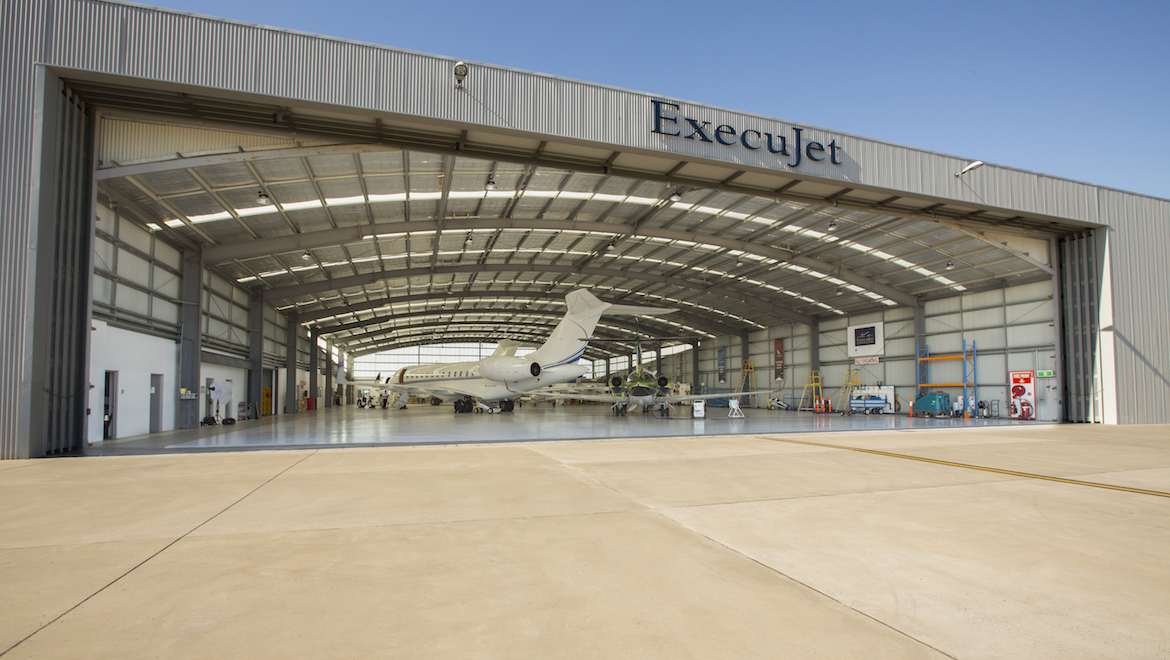
In its well-respected Global Fleet & MRO Market Forecast Commentary for 2018–2028, the respected US firm of Oliver Wyman states that the current trend in MRO “is cutting the number of players while simultaneously increasing the scale of those left standing”.
In its executive summary, the report says prospects for growth in air travel and the technological innovation disrupting all sectors of aviation is spawning mergers and acquisitions applicable to both ends of the market.
The summary draws on a specific global acquisition as a prime example: the purchase of Swiss-based SR Technics by China’s HNA Aviation Group.
It is a story familiar to Australia with the snapping up in January of ExecuJet’s MRO operations in Melbourne, Sydney and Perth by Dassault – part of the France-based aviation company’s acquisition of ExecuJet MRO across the Asia Pacific, the Middle East and Africa.
The Dassault acquisition came less than a year after United States-based Jet Aviation, part of aerospace and defence giant General Dynamics, the parent company of Gulfstream, bought aircraft sales and support company Hawker Pacific for US$250 million.
Inevitably the Dassault move raised questions about the maintenance of independence of ExecuJet MRO given ExecuJet is an authorised service centre for Dassault competitors Hawker Beechcraft, Gulfstream, Bombardier and Embraer at its Essendon, Melbourne base, and also conducts maintenance work in Sydney and Perth.
ExecuJet, Essendon is an FBO and offers MRO services under an Australian Civil Aviation Safety Authority (CASA) Certificate of Approval and New Zealand Civil Aviation Authority (CAA) approval. It is also a United States Federal Aviation Administration (FAA) Part 145 Repair Station.
The company has about 100 staff in Australia across aircraft operations, pilots, flight attendants, engineers, administration and sales. There are a further 50 people working at its Asian bases, including in Bali, Jakarta, Kuala Lumpur, Hong Kong and Singapore.
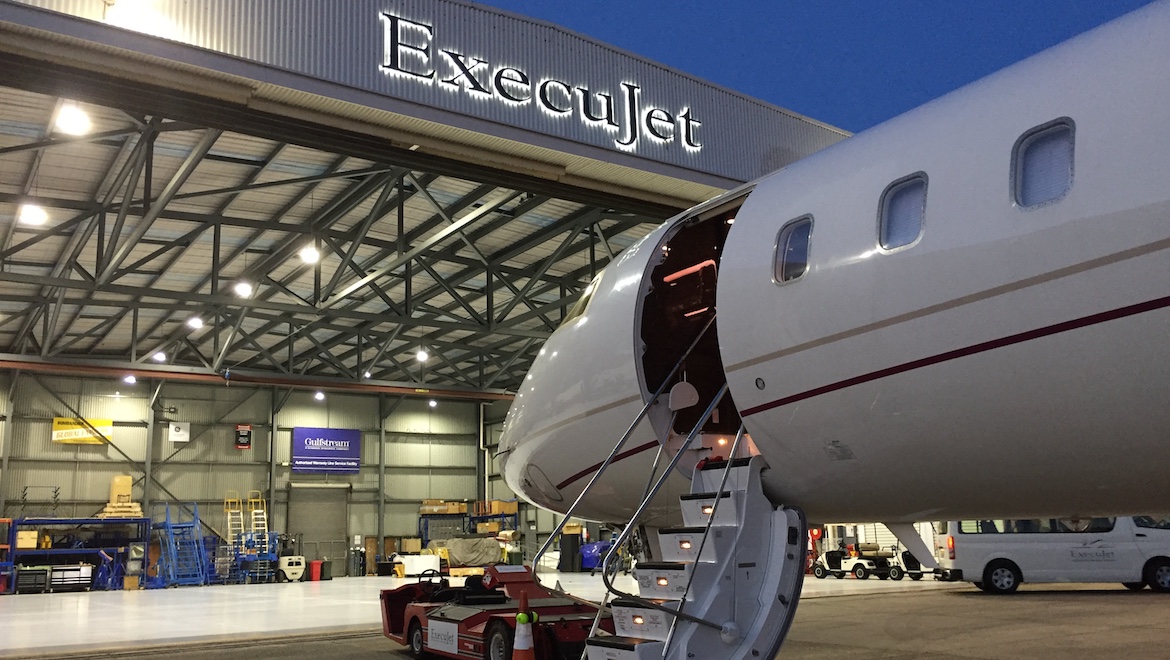
Embraer Executive Jets vice-president for sales for the Middle East and Asia Pacific, Claudio Camelier, was among the first to speak out during Avalon 2019 against the backdrop of Dassault, Embraer and Gulfstream, among others, showcasing their latest business jet models with global reach.
He said the company was in talks with ExecuJet in light of the Dassault purchase.
ExecuJet also supports Embraer’s business jets in the Middle East and Europe.
“Of course it is a point of concern to us the acquisition by Dassault,” Camelier said. “But our team is in discussions with them and making sure that we have the proper setup in place so they can continue supporting us in a positive way.”
“We are good partners with ExecuJet. They have always provided very good service to our customers and we have always worked quite well together.
“But it is a big change in the company, so of course we are monitoring the situation. We are confident that we will have a positive outcome.”
Just hours after his comments, and as further evidence of the trend outlined in the Oliver Wyman forecast, Dassault announced it had extended its global MRO reach even further with acquisition of the European maintenance activities of the TAG Aviation Group.
“The acquisition of … TAG Aviation, a major MRO provider, will allow Dassault Aviation to reinforce its European service centre network,” Eric Trappier, Dassault President and CEO said.
“With TAG Maintenance Services, we intend to develop further a network of excellence, and to support TAG’s different aircraft clients with the same commitment to service quality while expanding the share of Falcon maintenance activities controlled by the Dassault Group.”
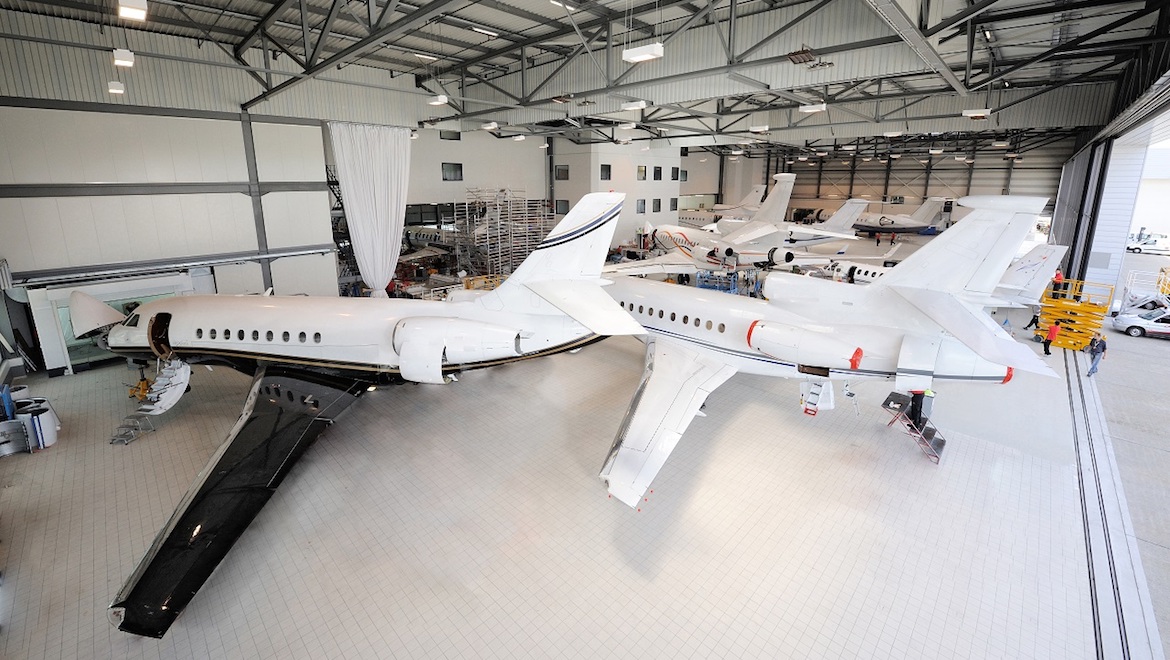
Mansour Ojjeh, President of TAG Group, the majority shareholder of TAG Aviation, said that given the many challenges faced by independent MROs in the current industry environment, he was pleased to sell this segment of TAG Aviation to a respected OEM “who values its employees and shares TAG’s high business standards”.
Australian Aviation put several questions to Dassault in light of the acquisitions and the expressions of concern about service continuity from competing operators seeking MRO from Dassault-controlled entities.
Geoff Chick, senior vice-president of the company’s worldwide Falcon jet service network, was quick to reassure customers.
“Non-Falcon customers who rely on ExecuJet and TAG for their service needs will continue to experience a world-class level of service and will continue to use these facilities – and have the same team of people supporting them,” he said.
“We want the ExecuJet and TAG Aviation businesses to continue to grow and prosper. Our belief is that all customers will see the benefits of our investment in these facilities.”
On the issue of Dassault’s expansion strategy related to MRO, he said the company plan had always been to ensure enough capacity in the right locations to support based and transient Falcon operators in the Asia Pacific and around the world.
“As we look forward – five to 10 years and beyond – we see fleet growth; the introduction of the Falcon 6X and future Falcons beyond that. We want to make sure we have the right capacity and quality of service to support that growth. Due to the capabilities of the Falcon models, the network needs are truly worldwide.
“Business aviation, in the past, was concentrated in North America and Europe but now it is a truly global business. In more recent years, we’ve seen the Dassault fleet grow substantially in developing regions such as Asia Pacific, the Middle East and Africa. This is why the acquisition of ExecuJet – which has a strong footprint in these markets – was so important to us.
“Asia Pacific, Africa and Middle East are now the right locations for us in terms of Dassault-owned service centres. The anticipated growth of the Dassault fleet in these regions warrants having Dassault-owned service centres there.”
In its global forecast, Oliver Wyman estimates MRO spending in the commercial air transport market is expected to rise in the next to years to US$114.7 billion from US$77.4 billion in 2018.
“That’s a jump of 48 per cent on an average four per cent compound annual growth rate (CAGR); in 2017, our forecast projected a slightly lower 3.8 per cent CAGR.,” the forecast report says.
“The expansion is back-end loaded, with growth averaging 3.5 per cent for the first five years, increasing the total to US$91.9 billion by 2023, and rising to 4.5 per cent yearly growth between 2023 and 2028.”
In the Asia Pacific, it sees an increase from a base of US$14.1 billion in 2018 to US$20.9 billion in 2028,
a growth rate of four per cent which matches estimated global growth, and is one per cent ahead of Europe and 2.2 per cent ahead of the United States.
The biggest increases are forecast to come from India (5.6 per cent) and China (an exponential 10.6 per cent).
Apart from consolidation across MRO providers, the forecast also notes that “some of the fastest growth is projected for MRO operations owned by aircraft manufacturers and other major original equipment manufacturers (OEM), such as engine maker General Electric.
“Boeing, for instance, has set a $50 billion goal for its aftermarket services as part of its effort to capture more life-cycle value out of its aircraft. That represents a tripling of its current revenue from the aftermarket,” the forecast report says.
“Our research indicates that OEMs servicing engines handle about 53 per cent of the market, while airlines and their affiliated MRO operations control 64 per cent of the airframe maintenance market. OEMs handle about 58 per cent of the component MRO aftermarket.”
Analysts at IBISWorld, Australia’s largest provider of industry-based research, apply a national context with their November 2018 report Aircraft Manufacturing and Repair Services in Australia.
It says the aircraft manufacturing and repair services industry has grown strongly over the past five years, mainly due to significant revenue growth in 2016-17 caused by increased government expenditure on defence.
“Increasing demand for maintenance, repair and overhaul (MRO) services from commercial airlines has also supported revenue growth for the industry’s larger players,” the report says.
“A rise in aircraft kilometres flown has increased the need for maintenance of existing aircraft fleets, boosting MRO activity. Industry revenue is expected to increase at an annualised 4.7 per cent over the five years through 2018-19, to reach $4.9 billion. This includes anticipated growth of 0.4 per cent in the current year.”
In Australia during the past 12 months, another key change saw Qantas decide to send its Boeing 717s offshore for their heavy maintenance checks after concluding that keeping the work in Canberra was not sustainable.
Singapore-based ST Aerospace won the contract to do the heavy maintenance work on the 717s following a competitive tender process. The contract begins in July.
Qantas said that despite the shift, the majority of maintenance on its B717 aircraft would continue in Canberra with work for about 25 QantasLink employees.
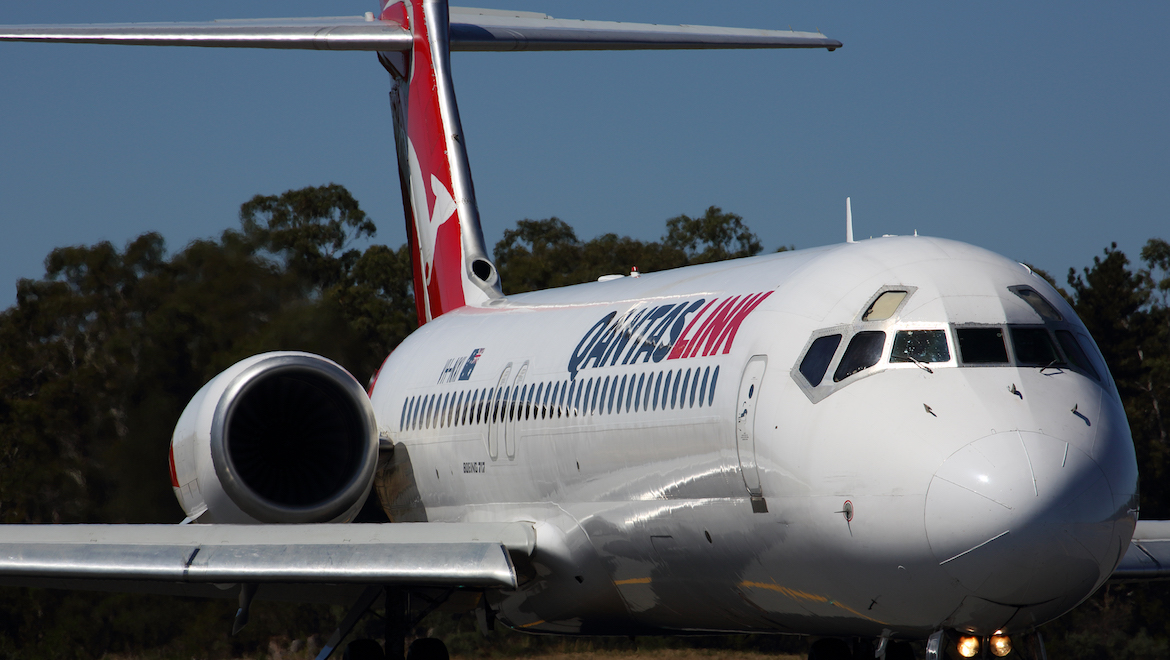
However, Australian Licensed Aircraft Engineers Association (ALAEA) federal secretary Steve Purvinas pointed out that moving 717 heavy maintenance offshore would result in the loss of 40 aircraft engineering jobs.
Qantas established the heavy maintenance facility in 2015 when it took the work off Cobham Aviation Services and brought it to Canberra.
At the time, ACT chief minister Andrew Barr said the agreement between the government and QantasLink was for five years and allowed for further expansion.
Qantas told Australian Aviation the heavy maintenance work had been contracted out to third-party provider Korr Aviation under a four-year contract that was due to expire this month (April).
It said Korr Aviation would seek redeployment for its affected contractors.
Qantas said maintenance requirements for the fleet of 20 717s over the next few years would include periods of up to a month where there would be no work for Korr Aviation contractors.
“This was not sustainable,” it said.
Further, ST Aerospace’s facilities would help reduce component repair times.
ST Aerospace is part of the Singapore Technologies Engineering group of companies and conducts MRO at facilities in Singapore, the Americas, the Asia Paci c and Europe. The company says it is the largest commercial airframe MRO service provider.
It already does work for Qantas, Jetstar and Qantas Freight and Qantas said all maintenance on the 717s would be done with oversight from its engineering and Cobham staff.
Heavy maintenance involves stripping the aircraft and life-limited components, including engines, for detailed inspections and servicing, while line maintenance covers tasks such as regular daily checks, general servicing and repairing/replacing broken parts.
Cobham has flown the fleet of 20 717s for QantasLink since 2005, supplying pilots and cabin crew.
In 2016, the contract was extended for a further 10 years in a deal Cobham reported to the London Stock Exchange as worth A$1.2 billion.
The end of heavy maintenance work in Canberra follows the progressive consolidation offshore of Qantas engineering out of Sydney, Melbourne Tullamarine and Avalon, while in Brisbane the Qantas hangar does heavy maintenance work on its 737-800 and A330 fleets.
In other heavy maintenance developments, Alliance Airlines and KLM UK Engineering, based at England’s Norwich Airport, agreed on a 10-year support arrangement for the airline’s Fokker 70 and 100 fleet.
Alliance CEO Lee Schofield said the airline would operate the Fokker variants “for at least the next 10 years.”
Meanwhile the airline says it continues to provides line and base maintenance services in Adelaide, Brisbane, Cairns, Essendon, Perth and Townsville via its authorised maintenance organisation (AMO).
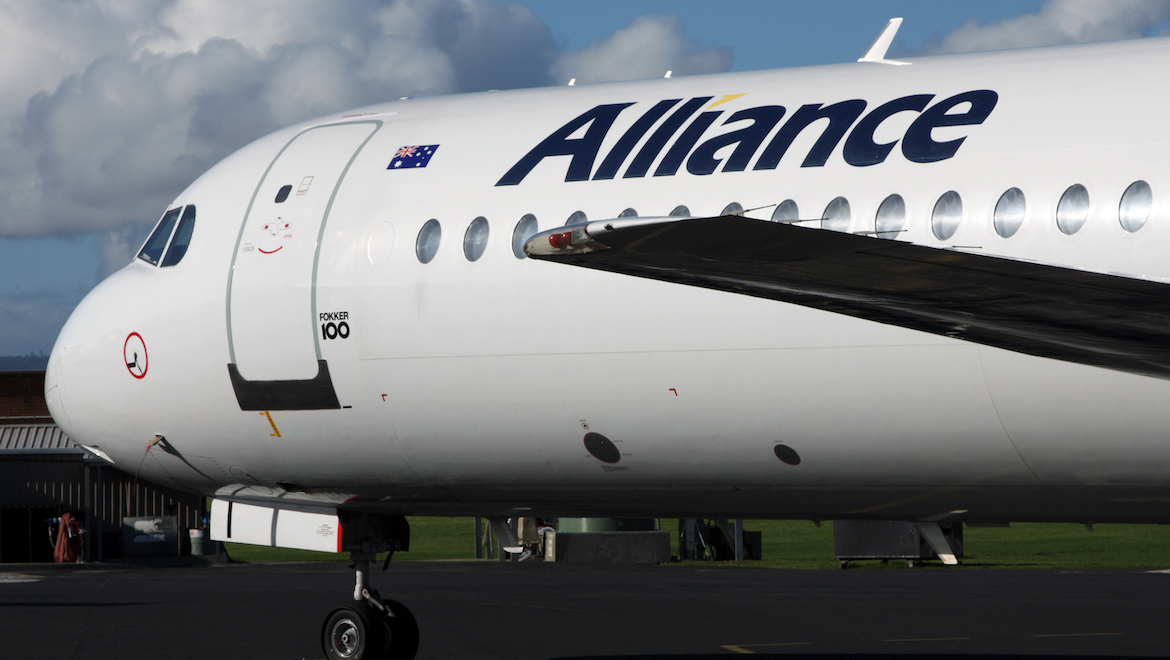
Alliance Aviation Services has a contract with Virgin Australia to operate certain Virgin flights until the end of 2021.
The contract extension with Virgin Australia came shortly after Qantas announced on February 1 it had purchased a 19.9 per cent stake in Alliance and foreshadowed plans to increase its investment.
The Korr Goup, meanwhile, which had been involved with the Qantas 717 contract in Canberra, has moved into the heavyweight paint business.
Ian Harman, Korr Group Business Development Manager told Australian Aviation it had opened the doors to a bespoke aircraft paint and re-finishing facility based at Avalon Airport.
“We have the capability to strip and re-finish all aircraft types up to and including B777s, plus most military platforms, including all rotary types,” Harman said.
“This, the only widebodied-capable facility in Australasia, will be operated and managed by AViat Global, a wholly owned subsidiary of the Korr Group.”
AViat Global is the holder of the Group’s CASA Pt 145 approval and is also able to offer selective maintenance services at the 9,200 square metre facility.
“We are also able to offer a bespoke 53m long spray and bake booth capability, in which we can re-finish rotary bodies and components,” Harman said.
In other MRO developments locally:
Aircraft Maintenance Services Australia, a former SIA Engineering subsidiary, was acquired by Heston Aviation for $4.5 million and rebranded as Heston MRO.
Heston labels itself as one of the largest independent MRO organisations in Australasia.
“We provide a full range of scheduled and unscheduled line maintenance, AOG recovery, consumables and components support services,” it says on its website.
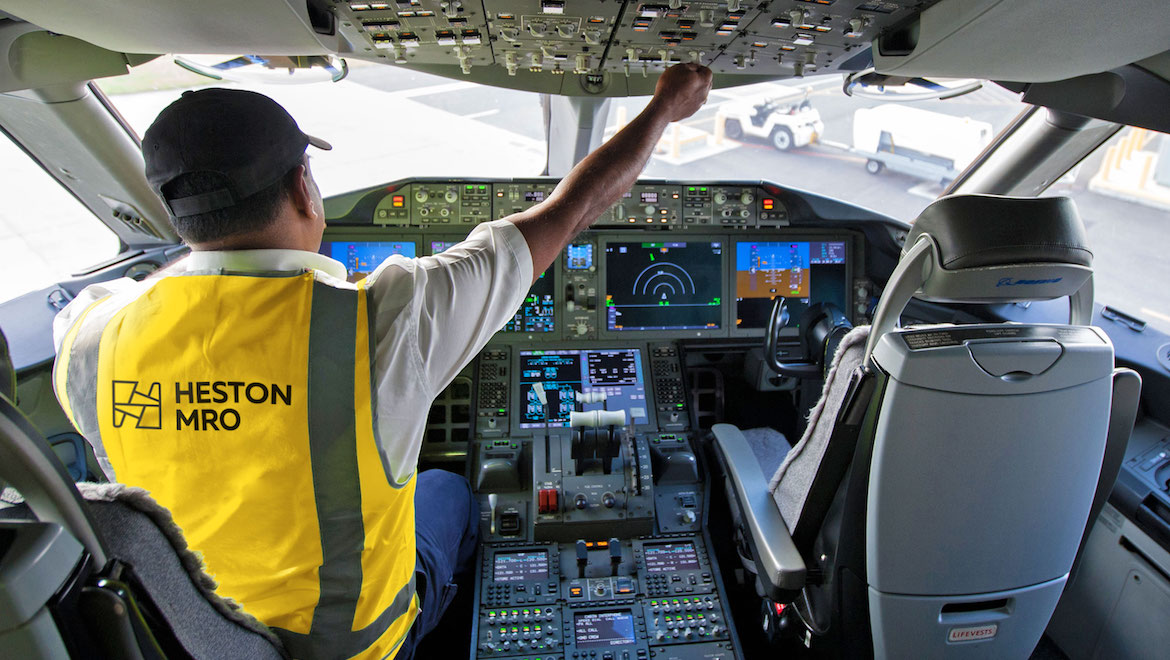
FlightGlobal reported that beyond its MRO ambitions, Heston plans to extend its operations into component trading, exchange, repair management, and leasing during the current first half of the year. That will be followed by engine and on-wing services for carriers, OEMs and leasing companies in the Australasian region.
“With our current line maintenance presence in all major airports in Australia, we are the single largest independent MRO player in the country,” Heston MRO chief executive Adrian Beirne was reported as saying.
“We aim to use this as a base for further development of our MRO offerings and growing together with local and international customers.”
It lists among those customers Singapore Airlines, Air New Zealand, Royal Brunei and Qatar.
—
RUAG Australia earned European Aviation Safety Authority (EASA) Part 145 maintenance organisation approvals. The certification ensures customers operating European-registered commercial and civil aircraft in Australia can use RUAG’s local component and MRO services.
RUAG Australia is an approved maintenance and engineering organisation. Apart from its work in the civilian space it has delegated authority over the F/A-18 Classic Hornet, AP-3C Orion, C-130H and C-130J Hercules, PC-9, S-70A Blackhawk, S-70B Seahawk, CH-47 Chinook, UH-1H Iroquois, Bell 206 Kiowa and Squirrel.
—
Textron Aviation announced what it called “new customer support solutions in Australia” by expanding the appointment of Premiair Aviation Maintenance across a full suite of Textron Aviation platforms.
These include Cessna Citation, Cessna Caravan, Beechcraft King Air, Cessna and Beechcraft piston and Hawker aircraft, through Premiair’s multiple Australian locations.
Kriya Shortt, Textron Aviation senior vice president, Customer Service said the appointment “helps ensure our customers have easy access to expert, factory authorised service for any requirement”.
Established in Perth in 2002, Premiair now has a national presence with additional service locations in Melbourne and at the Gold Coast.
Services include scheduled and unscheduled maintenance, structural and component repair and overhaul, avionics services and upgrades, and refurbishment.
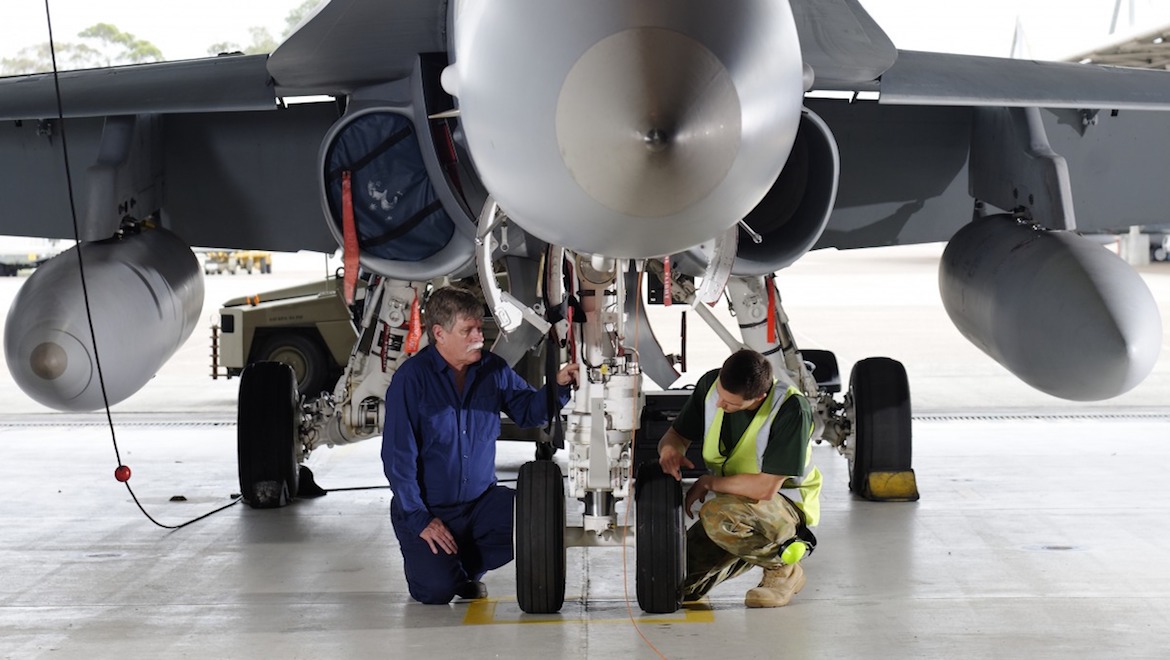
This story first appeared in the April 2019 edition of Australian Aviation. To read more stories like this, become a member here.















